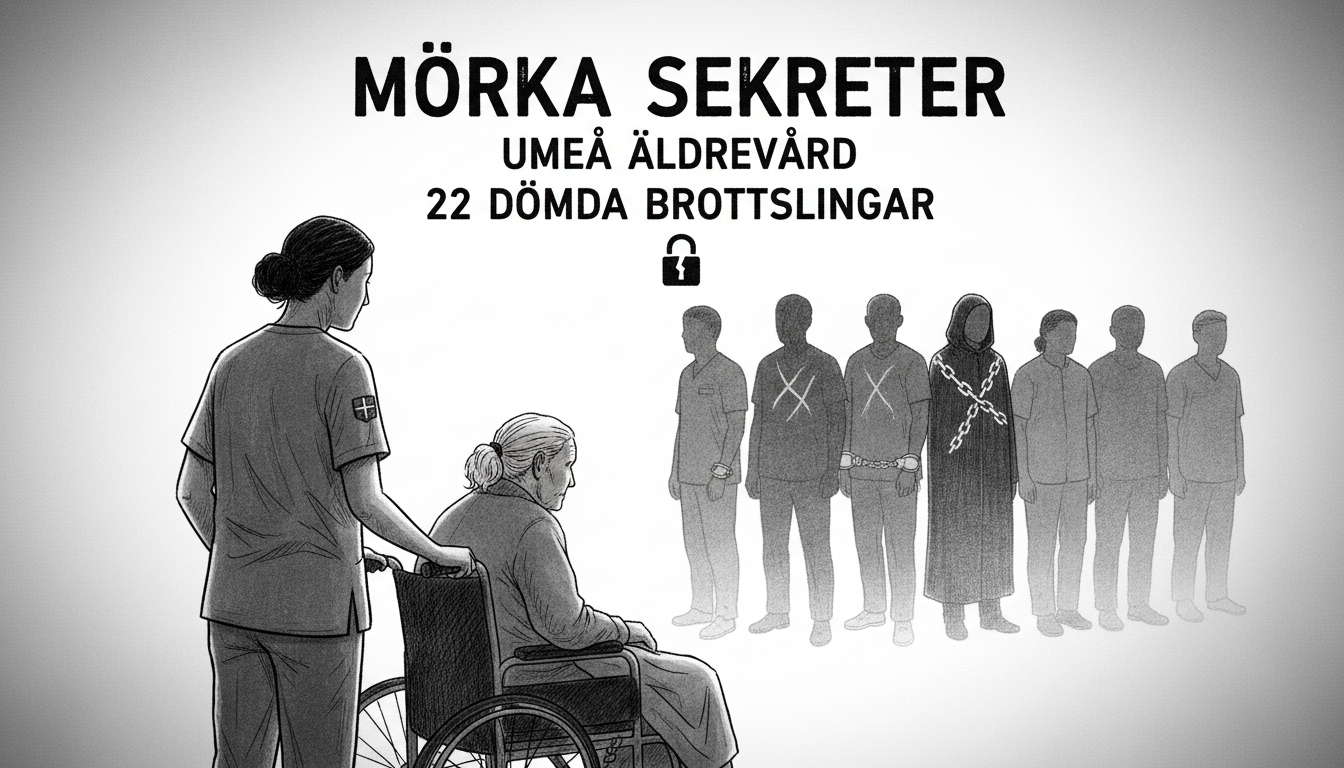At least 22 employees with criminal convictions currently work in elderly care services in Umeå, Sweden. A recent investigation revealed these staff members have been convicted of serious offenses including drug crimes, assault, and sexual assault.
The review examined approximately 350 employees across care homes and home care services in the northern Swedish city. Ten convicted individuals work at a major care facility, while twelve others provide home care services to elderly residents.
"This situation is highly problematic, but I'm not surprised given our large operation," said Rebecca Andersson, HR chief for Umeå's elderly care department, in a statement.
Umeå municipality does not conduct criminal background checks during hiring. "We lack legal authority to request registry extracts," Andersson explained.
Other Swedish municipalities take different approaches. Several communities including Örebro perform various forms of criminal checks for new care hires. Legal uncertainty persists about what municipalities can legally require.
The Swedish government plans to introduce legislation soon that would permit background checks for elderly care employment. The new law could take effect next year.
"We eagerly await the possibility to conduct registry checks," Andersson said, criticizing the current limitations.
When asked which crimes raise concerns, Andersson identified drug offenses, violent crimes, and sexual crimes as particularly problematic. She emphasized the need to consider the broader context.
The municipality struggles with staffing shortages. Even if officials wanted to exclude convicted individuals, they remain essential to maintaining care services.
"These employees would likely be irreplaceable," Andersson noted. "We'd have to hire people even further from the labor market. We don't automatically reject candidates with experience and competence."
The investigation followed reports of rapes by home care workers and neglect in elderly care facilities. Staff identities were partially protected by confidentiality, but researchers cross-referenced personnel lists with court records.
This situation highlights the difficult balance between protecting vulnerable elderly residents and maintaining adequate staffing levels in Sweden's strained care system. Municipalities face real dilemmas when legal restrictions prevent screening while public safety concerns grow.
Care facilities must weigh rehabilitation opportunities against the safety risks to Sweden's aging population. The upcoming legislation could resolve some uncertainty, but staffing challenges will likely persist.
